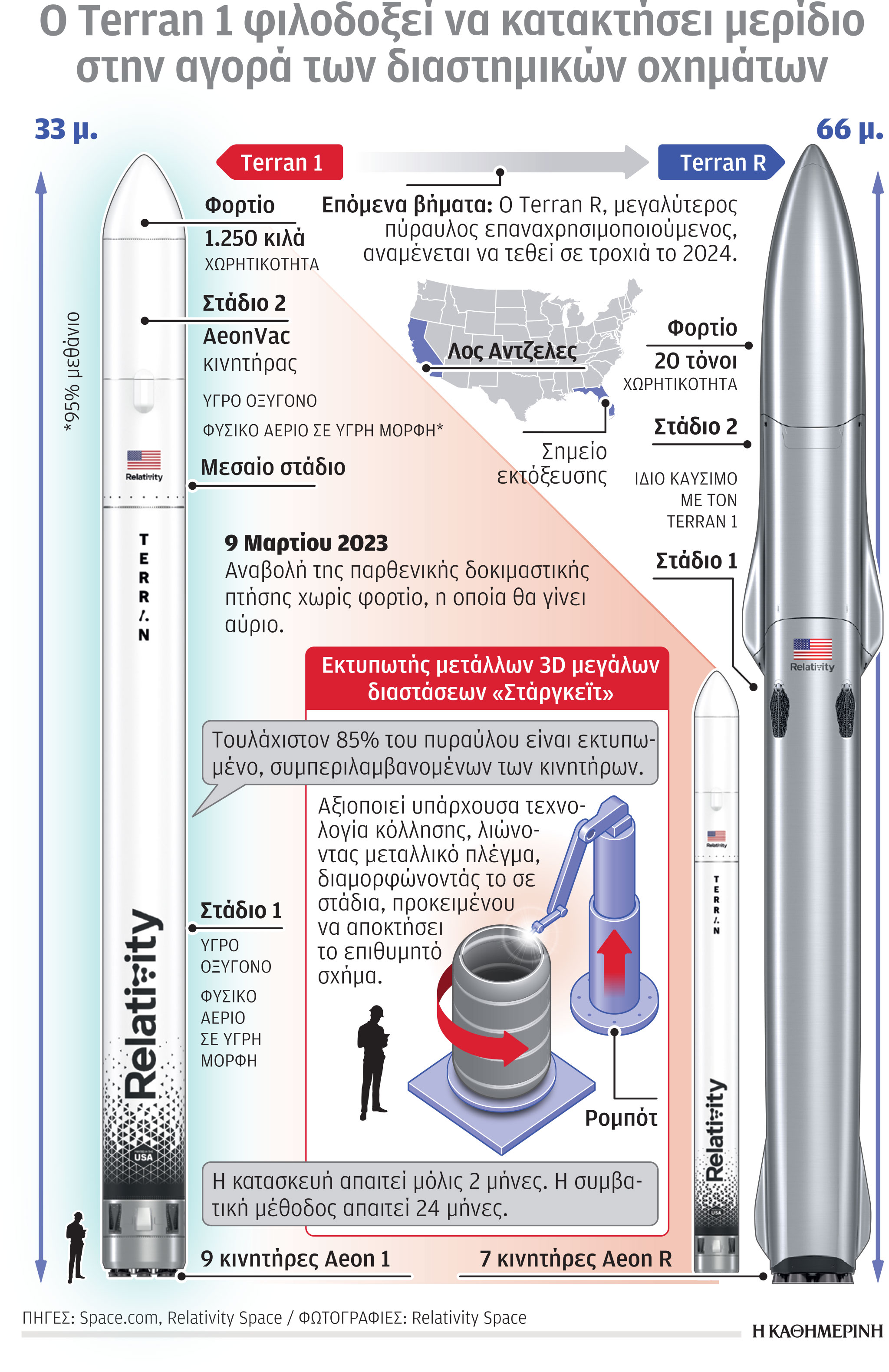
LOS ANGELES. The test flight of the world’s first 3D printed space rocket, whose launch was delayed on Thursday due to unspecified technical issues, is generating a lot of interest. A new attempt will be made today at 20:00 Greek time, as the technical team behind the ambitious plan insists that a small setback will not undermine its ambitions. Relativity Space executives say 3D printing is drastically reducing the cost of manufacturing spacecraft.
The Terran 1 rocket is 33 meters long and 85% of its engine volume has been 3D printed, including the rocket body, propulsion system and navigation systems. The goal is for future models to be 95% 3D printed. These new rocket models will be multi-role and will be capable of multiple takeoffs and landings.
Terran 1 will be the first rocket to use a combination of methane and liquid oxygen as fuel. Methane is considered a more efficient rocket fuel than kerosene. The combustion of methane in the engine does not leave a residue on the exhaust gases, as does kerosene, which reduces maintenance time and costs.
The startup planned to launch Terran 1 on Thursday afternoon from the Kennedy Space Center in Cape Canaveral, Florida. The test flight aroused great interest. The tech team declined yesterday to explain exactly what problems the rocket encountered shortly before launch, and the company promised to let the public know via Twitter.
3D printing dramatically reduces the cost of manufacturing spacecraft.
The test flight, codenamed optimistically “Good luck, have a good time,” was designed to evaluate the rocket’s behavior as it enters low Earth orbit. According to Relativity Space, the rocket’s second stage was not supposed to carry cargo or any satellites during its first flight. The company is seeking to test-flight to determine whether the rocket and its materials can withstand real-world launch conditions and whether the vehicle can reach space.
On Monday, Relativity Space CEO Tim Ellis explained that flying is a rare opportunity to learn. “Regardless of the outcome of the launch, we are still in the first minutes of a big race. One launch will not determine our future success,” Ellis said.
So far, no company or space agency has launched a methane-powered rocket into space. A Chinese company attempted to do so in December 2022 when the engine blew up before the rocket even reached orbit.
Source: Kathimerini
Anna White is a journalist at 247 News Reel, where she writes on world news and current events. She is known for her insightful analysis and compelling storytelling. Anna’s articles have been widely read and shared, earning her a reputation as a talented and respected journalist. She delivers in-depth and accurate understanding of the world’s most pressing issues.